How to Help Your Congested Baby Sleep
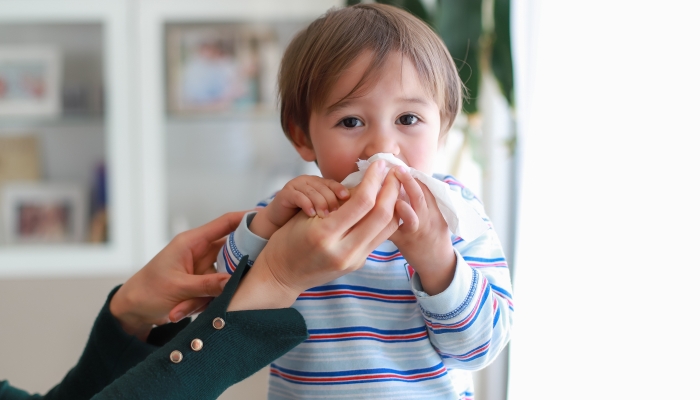
This post may contain affiliate links; please see our terms of use for details.
- Congestion is a natural response, protecting your baby’s body from harmful invaders.
- Often caused by minor respiratory conditions, like the common cold, congestion can be a recurrent issue for young children. Luckily, a stuffy nose often clears up quickly with few complications.
- Rest and hydration are essential to help your congested baby heal.
- Humidifiers, saline nose drops, a steamy bathroom and plenty of upright snuggles can all help clear your baby’s stuffy nose and help you both get the sleep you need.
Did you know babies can have as many as eight colds a year? Of course, we all love the snuffly sounds of a newborn baby but not if it’s keeping them and us awake at night. If your baby is finding it hard to feed or sleep, they may have congestion.
Newborn congestion usually clears soon after birth and colds don’t normally last longer than a week or so. Yet sleep is a precious commodity when you’ve got a baby in the house, especially if they’re not well.
How to Tell if Your Baby Is Congested
Babies naturally breathe through their noses, which supports successful breast or bottle feeding. A stuffy nose can make feeding difficult and may force your baby to breathe through their mouth. If you notice mouth breathing, this may indicate congestion. Other signs your baby may be suffering from nasal congestion:
- difficulties with feeding
- noisy breathing
- snoring
- runny nose
- coughing
- sniffling
- thick mucus
Chest congestion is less common and usually accompanies an illness. Signs your baby may be suffering from chest congestion:
- coughing
- wheezing
- grunting
- trouble feeding
- noisy breathing
If your baby is generally content, eating and sleeping well with no fever but sounds congested, don’t worry. Babies often sound stuffy as they have such small noses.
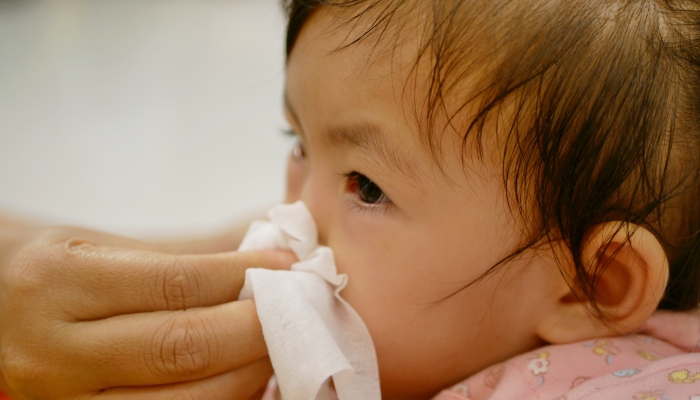
What Causes Congestion in Babies?
Congestion happens when your baby’s nostril and airways become inflamed and filled with excess mucus. Although it sounds and feels unpleasant, baby’s nasal congestion is one of the body’s natural defenses.
Babies have narrow nasal passages that are easily irritated. Inflammation and mucus help protect your baby’s body, preventing germs and irritants from entering the cells.
Congestion is often due to the common cold, or similar respiratory infections. Your baby can pick up a stuffy nose from a sick person, either through touch or droplets released into the air when sneezing, coughing, or talking.
Coughing is a common symptom of colds and can sound frightening in little ones. Remember this is another of the body’s natural defenses, helping to clear out mucus and protect the lungs.
Congestion may also be linked to:
- a viral or bacterial infection
- environmental factors, such as:
- breathing in dry air
- changes in weather
- air pollution
- seasonal allergies
- animal hair
- chemical irritants, such as:
- tobacco smoke
- cleaning products
- scented candles
- air fresheners
- perfume
How to Prevent Baby Congestion
One of the best ways to prevent baby congestion is to breastfeed, if you can, for as long as you can. This helps stimulate your baby’s immune system and protect them from illness. The longer you breastfeed the greater protection your baby has and the better they respond to infection. Breast milk is also the most easily digestible food for babies, providing the best source of nutrition and of comfort when your baby is unwell.
Do what you can to keep your little one away from infection. Request visitors stay away if they’re unwell and encourage older children with a runny nose to use a handkerchief or tissue when coughing, sneezing, and blowing their nose, and to wash their hands frequently.
Wash your hands thoroughly before feeding and touching your baby. Keep surfaces, toys and pacifiers clean to prevent the spread of germs. Regular vacuuming can reduce the incidence of environmental irritants, like pet dander. Keep your baby away from cigarette smoke.
Use saline drops to soften any mucus and keep airways flowing freely. You can use a bulb syringe to extract mucus from your baby’s nose and relieve stuffiness. This can be particularly useful before feeding but not every time as this can cause further irritation.
Breathing dry air is known to irritate airways and cause a stuffy nose. Ideal humidity levels are between 30 – 50%, any higher and you risk mold growth. Consider using a cool mist humidifier to increase moisture levels in the air if:
- if the humidity level in your home is low
- you live at a high elevation
- or in a particularly dry area
Regular cleaning is important when using a humidifier to prevent the growth of bacteria and mold.

How to Help Your Congested Baby Sleep Through the Night
Nasal and chest congestion is likely to leave your baby distressed and uncomfortable. Even when they’re visibly tired, it may seem like your baby is fighting sleep, especially if they’re unwell. Your role is to support them through this as comfortably as possible, this may mean adapting your usual routines.
Make sure your baby has plenty of fluids, especially if they develop a fever as this increases the risk of dehydration. If you’re breastfeeding exclusively, your baby doesn’t need any water or formula but may want to feed more regularly. If they’re finding it difficult to feed and won’t sleep, try different positions to make it easier for your congested baby to feed.
Your baby may want to be held more than usual. Skin to skin contact can be reassuring, calm your baby’s nervous system and help regulate breathing. They may also enjoy a comforting, gentle massage on their head or body. Call on partners and family members to help take turns cuddling your baby and make sure your infant’s bed is a safe sleeping space.
Your baby may prefer a more upright position, like a stroller or car seat, and a walk or car ride may help your little one sleep. Don’t leave your baby alone in a stroller or car seat and remember the safest position for your baby to sleep is on their back. Move your baby to a safe sleeping space as soon as you can.
Babywearing is another great way to help your baby sleep upright with the benefit of your comforting presence while they fall asleep, this can be particularly useful if you’re trying to soothe an overtired baby.
A warm bath can be a welcome distraction, helping your baby breathe and relax before bed. Steam helps break up mucus and clear baby nasal congestion, so the steamier you can get your bathroom the better. Keep your baby’s water at a comfortable and safe temperature while running a separate tap or hot shower. If your baby isn’t a fan of bathtime, sitting in a steamy bathroom can still help to clear their stuffy nose and make feeding easier.
Saline nose drops have been found to help with breathing and prevent the need for further medical intervention. You can also use a nasal suction bulb (bulb syringe) or nasal aspirator to remove mucus from your baby’s nose.
If you’re breastfeeding, some parents and parenting experts claim that squirting a drop or two of breastmilk into each of your baby’s nostrils can be an effective way to clear your baby’s stuffy nose. However, this practice remains somewhat controversial due to a lack of studies or data to support its effectiveness and safety.
Finally, running a cool mist humidifier can increase the moisture levels in your home, whichhelps hydrate the nasal passageways and keeps mucus thin so it can more easily flow from your baby’s congested nose or be coughed up.
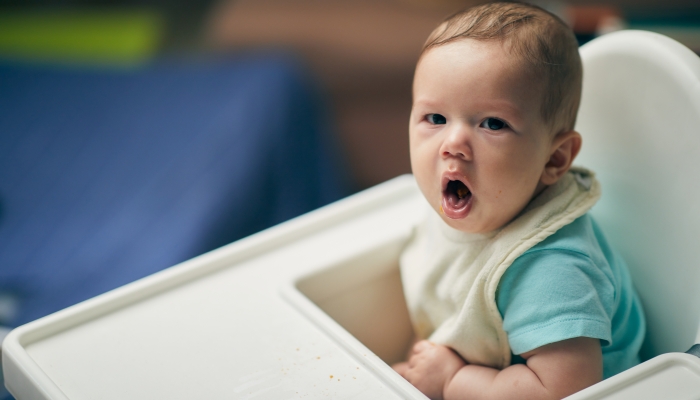
What Are the Best Products for Clearing Congestion in Babies?
Congestion usually clears up on its own within a couple of weeks but while you’re waiting for the symptoms to ease there are a few products you might find useful:
A Cool Mist Humidifier
- 𝙄𝙈𝙈𝙀𝘿𝙄𝘼𝙏𝙀 𝘿𝙍𝙔 𝘼𝙄𝙍 𝙍𝙀𝙇𝙄𝙀𝙁! Want to eliminate the suffering from the terrible effects of dry air? No need to struggle with cheap flimsy and leaky desk humidifiers. This quality ultrasonic humidifier is the one you’re looking for. It pumps relief immediately and effectively! – Feel better in minutes!
- 𝙊𝙋𝙀𝙍𝘼𝙏𝙀𝙎 𝙄𝙉 𝙏𝙊𝙏𝘼𝙇 𝙎𝙄𝙇𝙀𝙉𝘾𝙀 – 𝙎𝙇𝙀𝙀𝙋 𝙇𝙄𝙆𝙀 𝘼 𝘽𝘼𝘽𝙔! No humming, whistling, or crackling as this durable Whole-House Humidifier steadily and efficiently dispenses the soothing cool mist you crave. SLEEP better, BREATHE better, LIVE better! You’ll wish you found this years ago!
- 𝙈𝙐𝙇𝙏𝙄𝙋𝙇𝙀 𝙈𝙄𝙎𝙏 𝙎𝙀𝙏𝙏𝙄𝙉𝙂𝙎 + 360 𝙋𝙀𝙍𝘾𝙀𝙉𝙏 𝙍𝙊𝙏𝘼𝙏𝙄𝙉𝙂 𝙉𝙊𝙕𝙕𝙇𝙀 – This Humidifier was created with YOU in mind. Your environment, your needs, and your preferences! Designed with a super simple control dial and 360° rotating nozzle so that you can fully control and customize the mist output and mist flow direction. AUTOMATIC SHUT OFF- No need to babysit this Humidifier. We know you’ll want to shut this off before the tank runs out… Rest assured you can SET IT AND FORGET IT!
- 𝟐.𝟐𝙇 𝙇𝘼𝙍𝙂𝙀 𝙒𝘼𝙏𝙀𝙍 𝙏𝘼𝙉𝙆 – 𝙁𝙄𝙇𝙏𝙀𝙍 𝙁𝙍𝙀𝙀 – 𝙁𝙀𝘈𝙏𝙐𝙍𝙀𝙎 𝘼 𝙇𝙄𝙁𝙏𝙄𝙈𝙀 𝙒𝘼𝙍𝙍𝘌𝙉𝙏𝙔! Made with an impressive 2.2L super large water tank that keeps your Room-Humidifier right on chugging for over 26 hours on a single fill! Designed
Running a humidifier for a few hours each day will raise moisture levels in your home and can help loosen nasal congestion. Empty, clean and dry your humidifier according to the manufacturer’s instructions and avoid running them all day. Too much damp can lead to mold and bacterial growth.
Nasal Saline Drops
Avoid over the counter cold medications for babies and young children, as these can cause serious complications. Saline solutions, in the form of drops or spray have been found to be a much safer alternative for baby’s nasal congestion. You can make your own saline solution at home by dissolving one teaspoon of salt in two cups of warm water.
Diffusers and Essential Oils
Hot water vaporizers aren’t recommended for use around babies. Yet a number of studies have found diffusing essential oils, such as chamomile, mandarin and lavender may reduce pain and help promote sleep. Consult with your doctor to determine which oils are baby-safe. Using oils with babies younger than 3 months old is not considered safe. Consider baby-safe oils for massage and bath-time, or place a few drops on a wet flannel and hang in the bathroom.
FAQs
How long does newborn congestion last?
Newborn babies have tiny nasal passages and following birth these may be filled with mucus. This will slowly disperse, but can take days and even weeks. If your baby is feeding and seems otherwise well, this is nothing to worry about.
What kind of humidifier is best for baby nasal congestion?
Cool-mist humidifiers are recommended for baby congestion. Warm-mist humidifiers have a risk of scalding and can make breathing worse. Choose a humidifier to fit the size of your baby’s room, with a mist-direction feature and automatic shut-down once it’s out of water.
When should you worry about your baby’s congestion?
Most congestion is temporary. If your baby doesn’t seem to be getting better, has been unwell for longer than 2 weeks or you notice any of the following warning signs, call your doctor:
- any fever in an infant under 3 months
- a fever of 102°F or higher in older babies and children
- any trouble breathing or feeding difficulties
- blue tinges to skin, lips or nails
- green, black or pink mucus, or yellow, if lasting more than a few days
What medications can I give my baby to help ease their stuffy nose?
The FDA doesn’t recommend over-the-counter cough and cold medicines for children younger than 2. This Harvard MD suggests what your baby needs most is lots of TLC — and some patience. Keep them hydrated and comfortable with the suggestions above, but don’t hesitate to ask for medical advice if you’re worried about any of your baby’s symptoms.
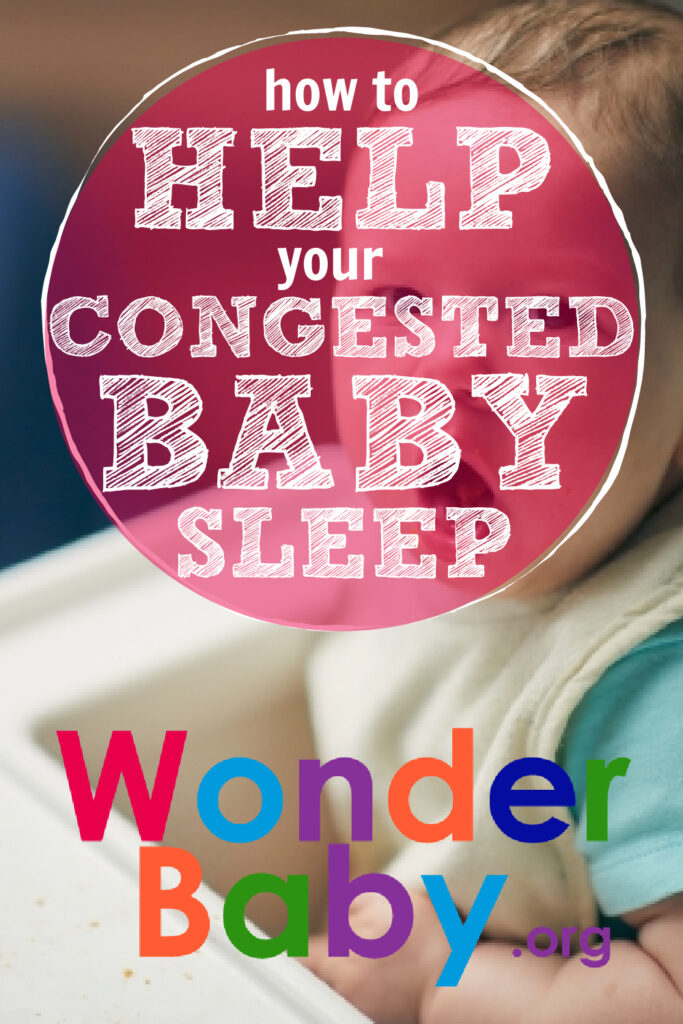
The information WonderBaby provides is not intended to be, and does not constitute, medical or other health advice or diagnosis and should not be used as such. Always consult with a qualified medical professional about your specific circumstances.
Related Posts
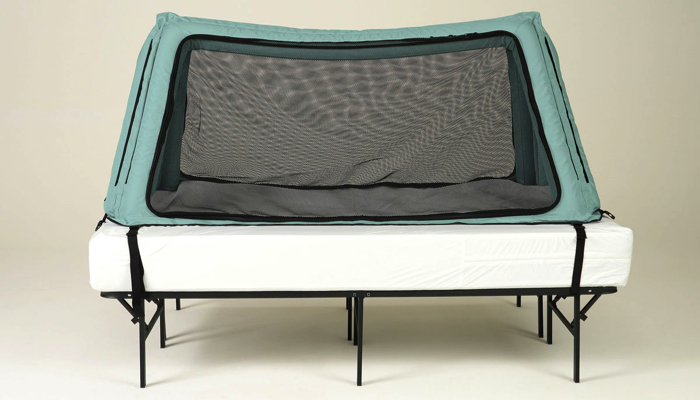
Sleep, Special Needs
Safe Place Bedding Travel Bed Review
Traveling with a special needs child can be stressful! Having a safe, durable, and easy to use travel bed can make traveling so much easier!
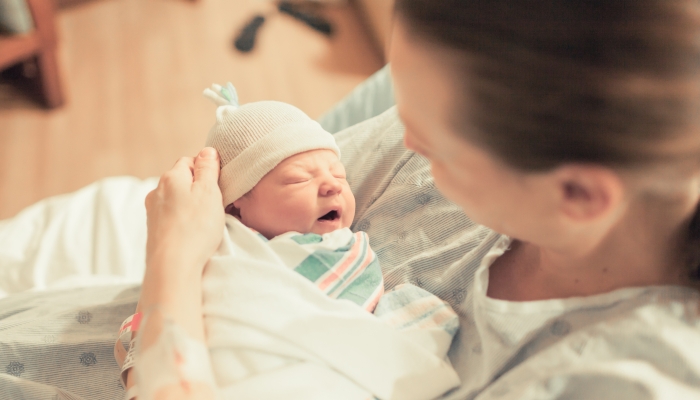
Sleep, Special Needs
Sleep Regimen for Premature Babies: Special Considerations
It can take premature babies much longer than their full-term peers to sleep for long stretches. A preemie sleep schedule may encourage better sleep.

Sleep
Mastering the Bedtime Routine: 3 Tips for a Peaceful Night’s Sleep
From around six weeks, a newborn bedtime routine can help your baby learn the difference between day and night and prepare for a restful night’s sleep.
